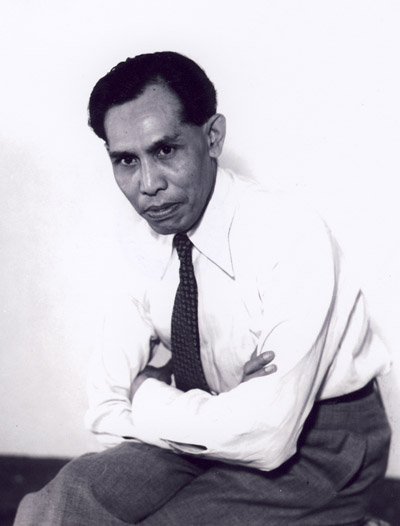
Civis 001/2013
“Bhinneka Tunggal Ika” and the Purpose of Indonesian Society
“Bhineka Tunggal Ika” (Unity in Diversity) can apply perfectly, only if the “Diversity” is reinforced by the “Unity”. On the other hand, “Unity” can only remain “Unity” if “Diversity” is well attended to, developed, and emphasized. (Johannes Leimena)
In previous article, state and nation relationship has been mentioned several times. State, among others, is a nation with territorial organization. Therefore, state consciousness must go hand in hand with nation consciousness.
The country of Indonesia cannot go on and live forever if the passion and consciousness of Indonesian nationhood does stay aflame in the soul of every citizen. Once and for all we should keep in our mind and heart — and this should be interwoven into our way of thinking and action:
Indonesia has different tribes and ethnicities, but all of them are also one nation, from Sabang to Merauke: “Bhinneka Tunggal Ika” (Sanskrit, Unity in Diversity).
Even though they don’t have the same level of civilization, each of them has its own form of talent. If they are likened to flowers and these flowers were united, then it would be a beautiful bouquet of gorgeous flowers.
At the present time there are tendencies that emphasize more on “Diversity”, thus arises the symptoms of extreme “regional-ism” or “provincial-ism”. Regional feeling and desire to promote the life in the regional areas are healthy feeling and desire, as long as we don’t forget the interests of the whole of Indonesia.
On the contrary there is a tendency of “centralism”, which emphasizes the “Unity”. Indeed our country as an archipelagic country needs a powerful “central authority”, but that power should give the regions sufficient autonomy that can satisfy them.
“Bhineka Tunggal Ika” (Unity in Diversity) can apply perfectly, only if the “Diversity” is reinforced by the “Unity”. On the other hand, “Unity” can only remain “Unity” if “Diversity” is well attended to, developed, and emphasized. In short, there should be a healthy balance between “Diversity” and “Unity”.
These things are applicable to all citizens, especially for Christians in the regional areas. Extreme regionalism, as manifested in the Moluccas (RMS, South Moluccan Republic), is the problems arising from the misunderstanding of relationship between: nation–ethnicity and ethnicity–religion.
If “Bhineka Tunggal Ika” also applies in these relationships, then I believe events like in the Moluccas will not be repeated.
Agreement on the understanding of the Foundation and Purpose of the Indonesian Society is very important.
What has been explained regarding the state and nation also applies to society with its layers and groups. Society must have a foundation and a purpose, if the society wants to grow in a healthy way. There must an understanding agreement on the foundation of the society.
In general people’s lives are influenced by the religious and philosophical views in the society. This raises different interests in society, in both socio-economic and politico-cultural fields. It is also the cause of the emergence of different political parties.
But in my understanding, in this case there should be an understanding agreement too. Apart from the national unity, there must be united stance that society’s life should be based on law and morality, and should be aimed toward the happiness and welfare of the people.
Society in the past has colonial character, meaning that it is influenced by foreign power. Todays’ society is searching for its own shape that is suitable with the nature and character of the people of free Indonesia.
Indonesian society in today’s liberated environment is not yet “stable”. It is swaying. Social groups are undergoing a shift. Everything is moving with power struggles, and at times the methods that are incompatible with morality.
Honesty is a notion that is talked a lot, but practiced little. Our society is a society in transition, but it’s also a society that shows symptoms.
In small books entitled: “Condition and Hope” and “The Church in the Midst of World Crisis and the Crisis in Indonesia”, I have tried to describe our society at the present time. Corruption, demoralization, and other bad symptoms, actually show us that we are coming to a condition where as if we no longer know nor respect our fellow human beings.

This series originates from the lecture by Dr. Johannes Leimena (1905-1977) in Sukabumi, West Java, in 1955, entitled “Responsible Citizenship”. Being a student activist in STOVIA medical school, he joined the committee for the 1928 Youth Congress which gave birth to the monumental Oath of Youth. Then he served as minister in 18 cabinets from 1946 to 1966, from Minister of Health until Vice Prime Minister. He was entrusted as the Acting President of the Republic of Indonesia for seven times when President Soekarno was overseas. The Bandung Plan that he drew up based on his experience as Minister of Health is the origin of today’s Community Health Center system. He also helped the founding of the Indonesian Christian Student Movement and the Council of Churches in Indonesia.
